by Ayesha Basi
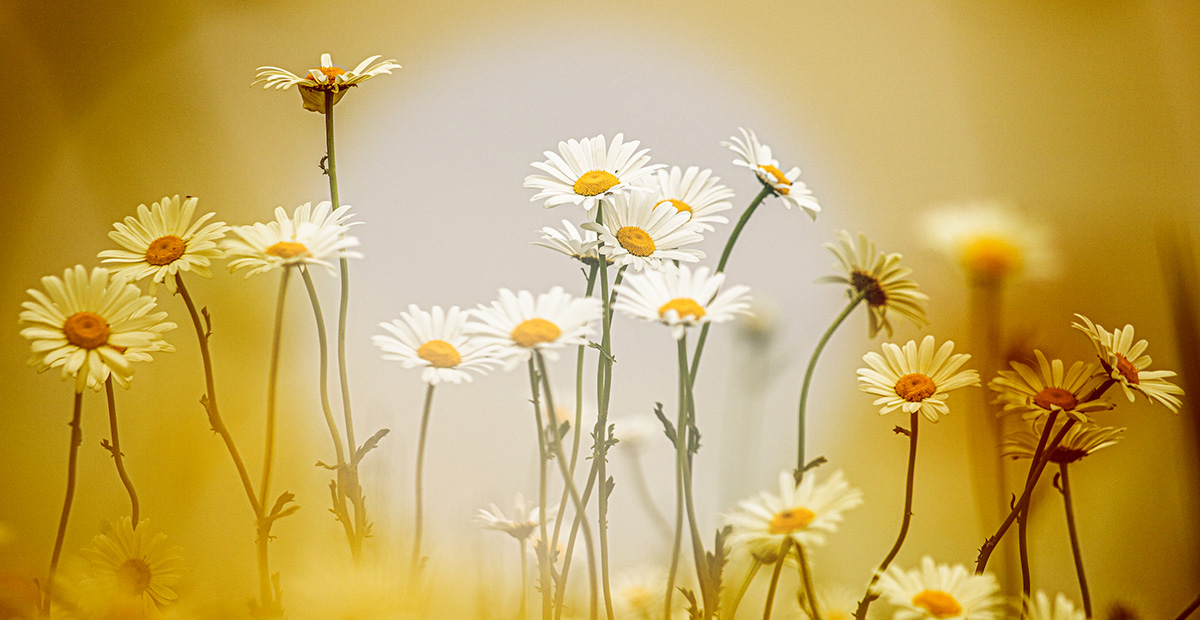
Last week, I participated in my first silent retreat led by the wonderful Kate Johnson. Not only was it my first retreat, but it was my first time spending five days in meditation focused solely on metta, the practice of lovingkindness. Metta is a practice of cultivating unconditional love, kindness, and positive energy towards oneself, others, and the world at large.
(more…)by Richard Williams
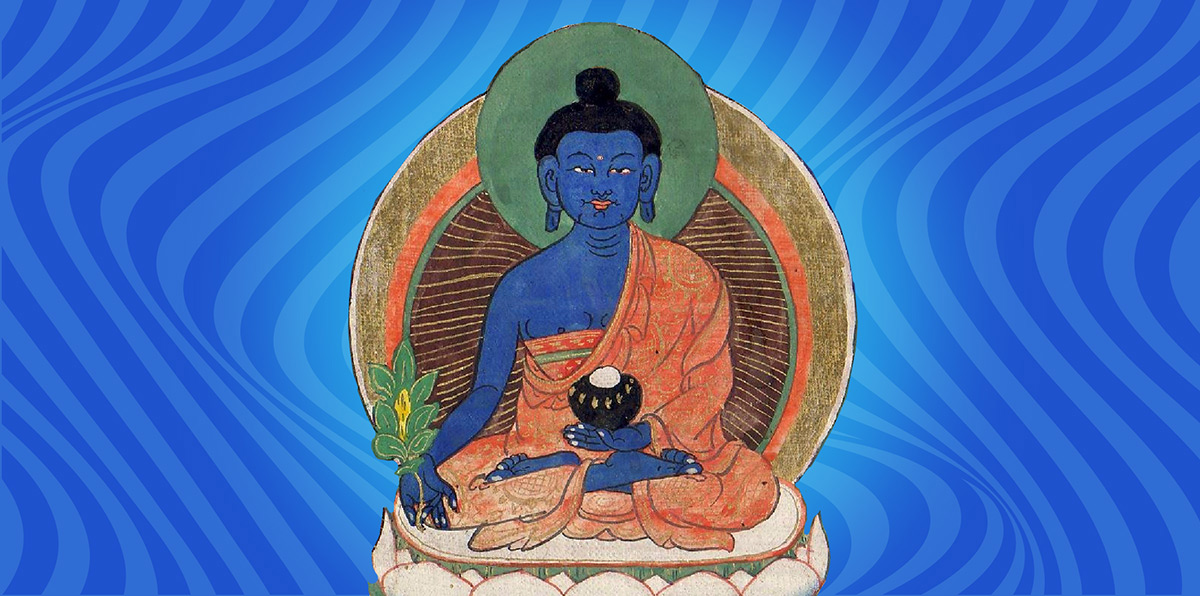
As a person living with a diagnosis of severe mental illness, in a Black body, and with a queer heart, the lack of belonging, community, and connection has been normalized. Early in life and in a child’s mind, a survival decision had to be made, to search for belonging or function. I chose to function, however empty that functioning was. I suspect this is a shared experience in a society that determines humanity and value based on our contributions.
by Victoria Fontana
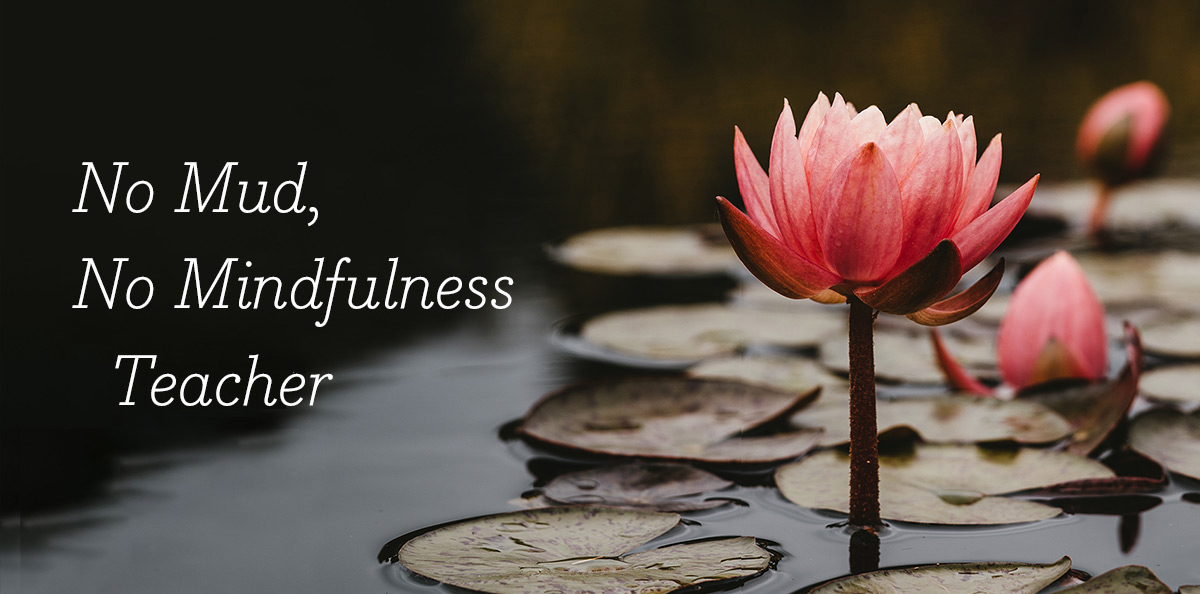
When I think about my path to becoming a Mindfulness and Compassion teacher, I am reminded of the many paths that converged from diverse points into the moment I realized that this was my calling. Life experiences, mentors, friends and contemplative teachings make up the landscape of my path. Here I share this journey with you.
I was a peacemaker by nature, with a keen desire to alleviate others’ suffering. Part of this was nature, and part was “nurture.” Unfortunately fortunate was the child who grew up in divorce and was desperate to keep those she loved at ease, keep the peace. I developed a massive radar for others’ dis-ease. This very trauma of a three-year relationship with daily dismay became bootcamp training for my often-criticized sensitivity to others’ emotions and well-being. My energies were misguided, and I was unaware that these efforts were my desperate attempt to survive and hold on to love.
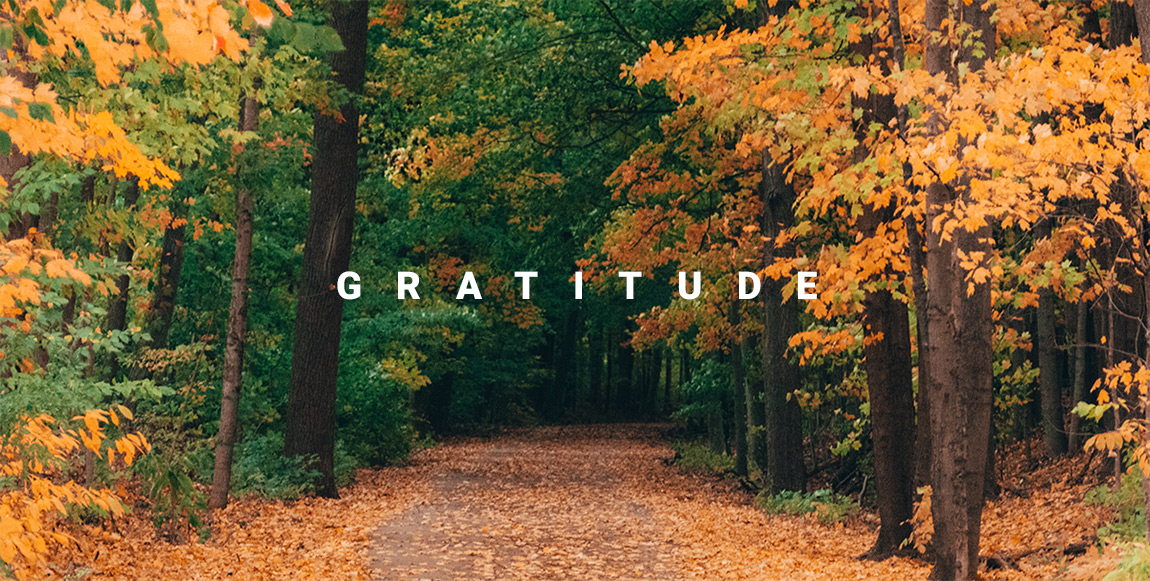
In his Stages of the Altruist’s Path, the 5th century Nalanda master, Asanga, taught that gratitude emerges from acknowledging the kindness and the care we’ve been shown by all of life—the kindness of our parents in giving us life, of our human ancestors in tending and caring for the earth and creating our culture and way of life; and the kindness of nature that’s generative and sustains life. This practice requires accepting all of the difficulties and the harm we see and have experienced in a knowing but not passive way; yet sincerely remembering and connecting with all of the good. This is especially relevant as some prepare to celebrate Thanksgiving in the United States. Although it’s a holiday many recognize as an opportunity to express gratitude, it is also a national day of mourning for Native Americans. We must name and honor the entirety of this history. It is what’s necessary for gratitude to emerge.
by Joe Loizzo
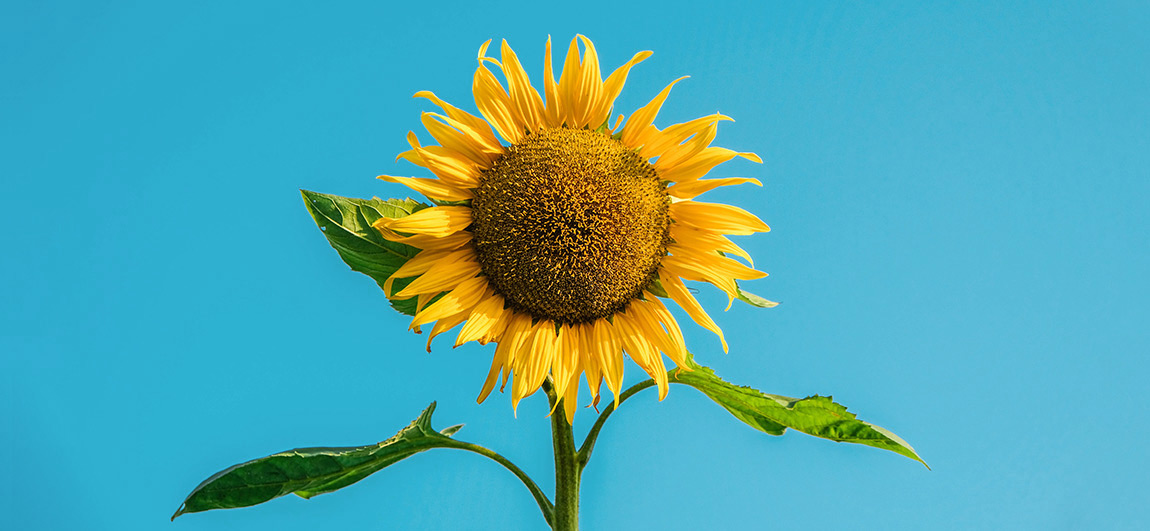
With summer here, we invite you to make more space and time to practice unwinding, whether in your favorite natural refuge—seaside or mountainside, lake or forest—on the cushion in your meditation space or in your choice reading chair or coffee nook in whatever spare minutes or hours you can clear in your day. Turn off your devices, wishing all life well, and reconnect with your own body and mind.
As you reconnect with yourself, tuning in to the natural rhythms of your body and mind, feel how precious such reflective moments are in your life. Especially invite and savor any memories that evoke a felt sense of being fully whole and alive—in harmony with yourself, nature, and the extended family of all life.
By Scott Tusa
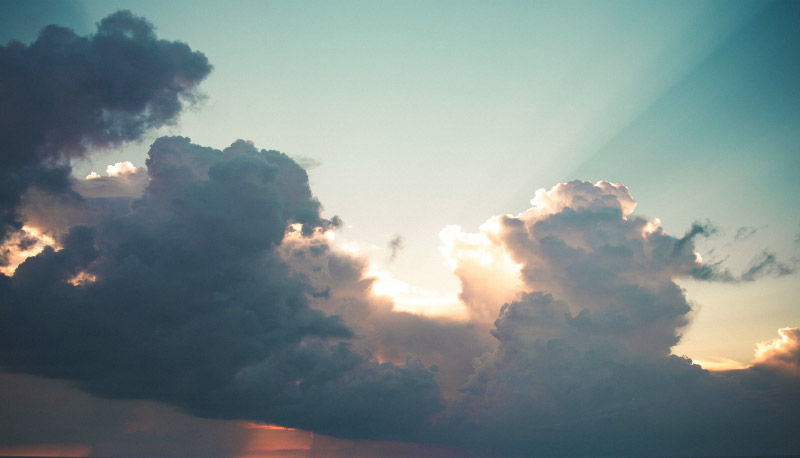
Editor’s Note: In this post, Nalanda Institute faculty Scott Tusa describes meditation as a practice of accessing our Buddha-nature, the open-hearted warmth and clarity the Buddha taught is our true essence. In a forthcoming Sustainable Happiness course which begins February 24th, Scott will be teaching what Tibetans consider the most direct path of meditation to quickly access that nature within us—the art of the Great Seal or ‘Mahamudra.’
The essence of the Buddhist path is the teachings on Buddha-nature (awakened-nature). As a foundational principle, I have found these teachings indispensable for my meditation practice.
What is Buddha Nature?
Buddha-nature represents the extremely positive news that our essence, no matter how many mistakes we make, is not fundamentally flawed. It is the opposite of original sin and affords us the potential for true freedom.
By Nalanda Institute Editors
[metaslider id=”5327″]
As the year comes to a close, we’d like to take the time to share with you some highlights of all we’ve accomplished together throughout the year!
Late Winter. We brought in 2019 with a trifecta of inspiring courses and trainings: Yoga, Mind & Spirit Training, Sustainable Happiness Course in Compassion, and Meditation Teacher Training in Compassion.
Spring. In the spring, alongside our Toronto partner X-Hale, we successfully launched our new online Compassion-Based Resilience Training (CBRT) Teacher’s Program, with outreach worldwide; and graduated the NYC and San Francisco cohorts of our Contemplative Psychotherapy Program.
by Nalanda Institute Editors
[metaslider id=”4579″]
As this year of the Earth Dog comes to an end and we usher in the new year of the Earth Mother Pig, we are happy to look back at just a few of the amazing accomplishments of our community. 2018 has been a pivotal year in which we’ve evolved our teaching methods, deepened our community, and made our programs more widely available.
Extended captions and an elaboration of some of our programs and events in 2018:
by Fiona Brandon
During our recent Mindfulness Year fall retreat, Joe Loizzo emphasized to the cohort that the development of the self is “a creative project,” but one that is not always in our favor. “There is a tendency once we make an interpretation [about ourselves or an experience]…to forget it was an interpretation. [We] just stamp it with the seal of reality because for one moment [the interpretation] was serviceable.” It can be shocking to look under the hood of this habitual pattern and see that we create lifelong fundamental beliefs about ourselves, and the world around us, based on interpretations that may have been true in one moment, but are inaccurate for subsequent moments in our lives!
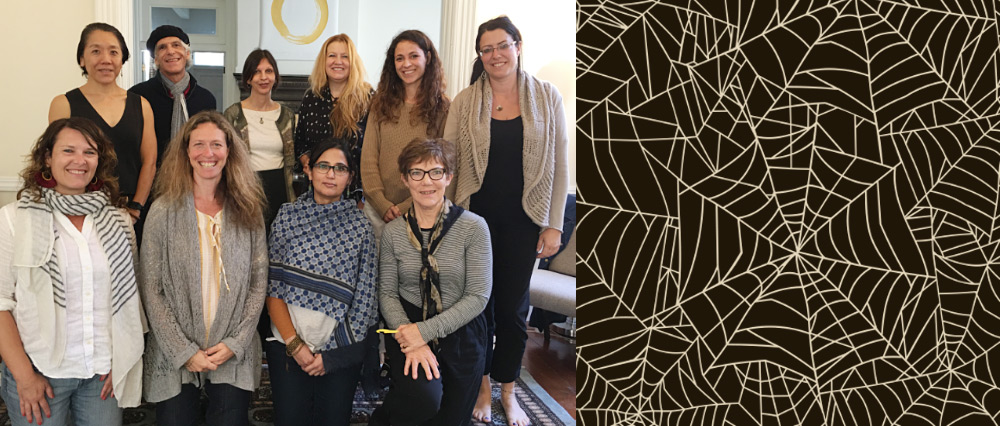
The year begins with an understanding of the webs we weave. Pictured on retreat are San Francisco students with Dr. Joe Loizzo (second in top row) and Fiona Brandon (second in bottom row).
by Mindy Newman
If someone had suggested to me a few years ago that it would be a good idea for me to publicly share my experience with meditation by writing about it in a blog post, I frankly would have thought that they were insane and considered politely urging them to seek mental health treatment. My stream of consciousness probably would have gone something like: “I am a terrible meditator. I don’t have any discipline. My mind is an absolute mess. I don’t even like meditating. What is wrong with this person — isn’t is obvious that I am awful at this?” I really believed there was something wrong with me — a Buddhist practitioner who hated meditation, and I felt tremendous shame about it.
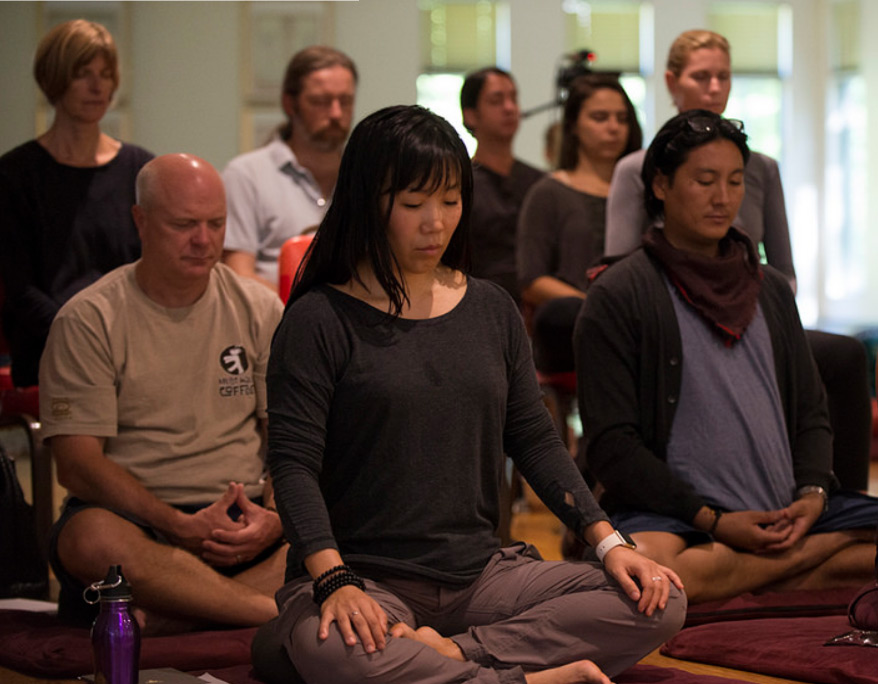
Students of the Contemplative Psychotherapy Program practicing meditation while on retreat at Menla Mountain House. Photo by Darren Ornitz.
For years, I sat in meditation classes and imagined that everyone else on the cushion was having some kind of better experience. I’d heard enough instructions from different teachers about the ubiquity of the “monkey mind” to accept that distraction was normal, but surely my amount of distraction was too much — much more than normal — and definitely more than anyone else’s.
by Geri Loizzo
There’s a reason why I’m so excited about our upcoming Meditation Teacher Training in Compassion. Though we benefit greatly from Mindfulness as the way of personal freedom, or the vehicle for not getting caught up in the stresses of everyday life, it is compassion practice that takes us back to Mindfulness’ ethical roots. Historical Buddha, after all, declared that every mind is noble regardless of race, class or gender. In that sense, his remarkable insights, the four noble truths, were radically compassionate at their very core.
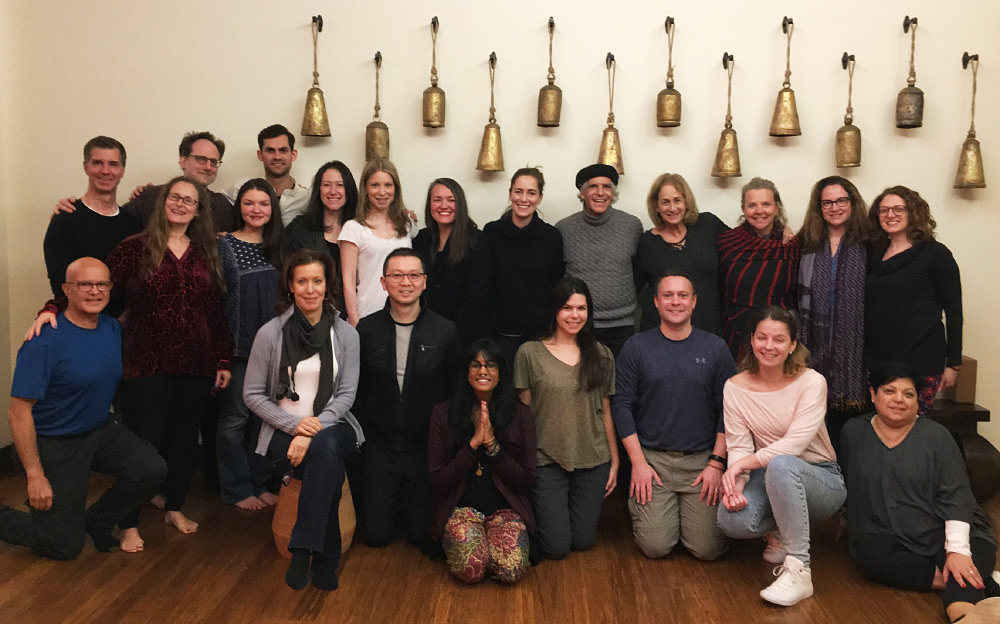
Students and teachers gather for graduation photo at the conclusion of our last training. Congratulations everyone!
Compassion Training is a treasure of practices that have the potential to soften the heart, protect from stress, and bring us closer to our fellow human beings in an ever-widening circle of kin. They are a social gift that keeps on giving.
by Joe Loizzo
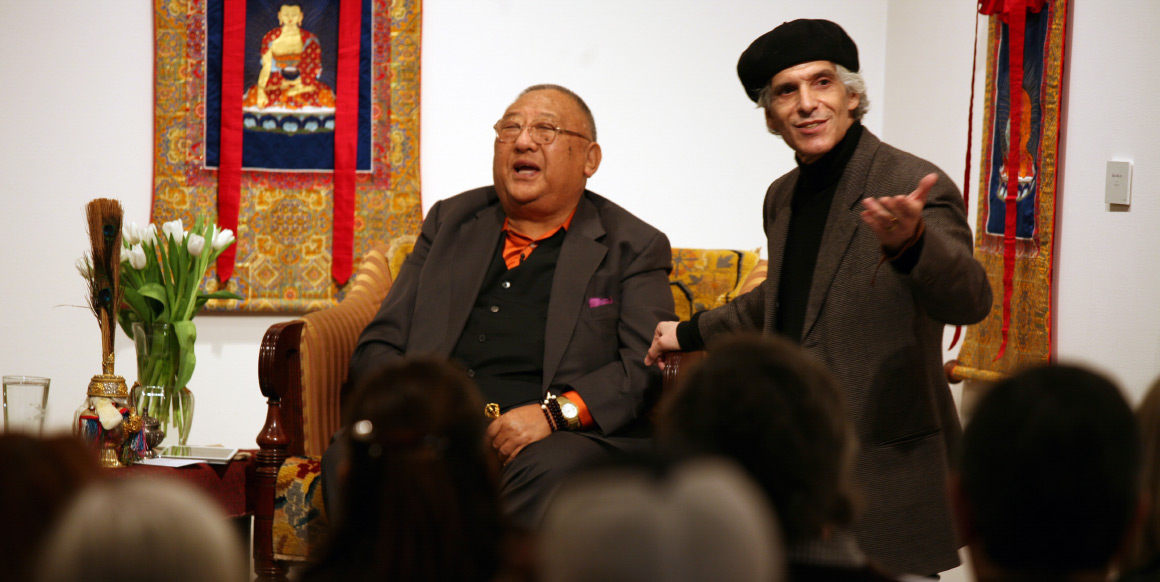
Early this year, the Tibetan community in exile and the international Buddhist community lost one of its leading lights—Kyabje Ngawang Gelek Demo Rimpoche—known to his many students around the world as Gelek Rimpoche, or simply Rimpoche, our precious gem. Besides His Holiness the Dalai Lama and Gelek’s peer, Trungpa Rimpoche, our jewel had few equals in his ability to be a living bridge between the spiritual-intellectual elite of Tibet’s Himalayan ivory towers and the increasingly global technology and pop culture of the modern West. While his preeminence among the vanishing breed of master scholars trained in the mountain kingdom alone would have merited a storied place in history, it was his unexpected role as a leading monk-exile turned lay Buddhist teacher that earned him global renown.
